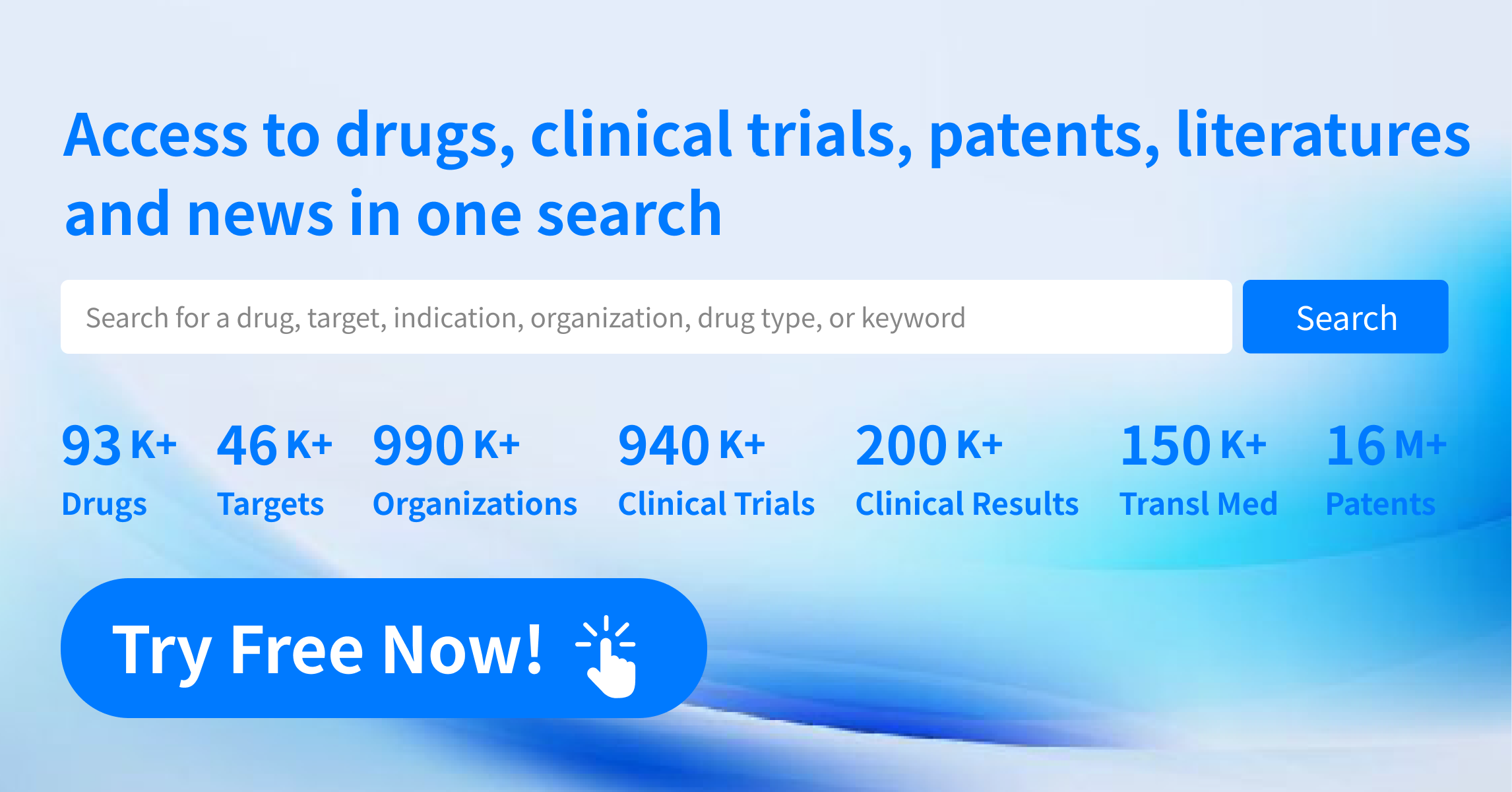Pharma Frontiers: Daily Digest of Global Pharmaceutical News – Aug 21
1.Bristol Myers Squibb's CAR-T Therapy Application Accepted by the EU, with Complete Tumor Disappearance in 94% of Patients!
On August 20th, Bristol Myers Squibb announced that the European Medicines Agency (EMA) has completed the validation of the new indication application for their CAR-T cell therapy, Breyanzi (lisocabtagene maraleucel; liso-cel), and will begin reviewing its use for treating adult patients with relapsed or refractory follicular lymphoma (FL) who have undergone two or more lines of systemic therapy. According to the press release, Breyanzi has received approval in Japan to treat high-risk FL patients previously treated, making it the first CAR-T therapy approved for such high-risk FL patients. FL is the second most common form of slow-growing non-Hodgkin lymphoma (NHL), accounting for 20-30% of all NHL cases. Most patients with FL are diagnosed over the age of 50. As FL develops, white blood cells accumulate in the lymph nodes or organs of the body, forming tumors. The characteristics of FL include alternating periods of relapse and remission, making the disease more difficult to treat upon relapse or progression. The current application is primarily based on the results from the TRANSCEND FL trial, an open-label, global, multicenter, phase 2, single-arm study evaluating the efficacy of Breyanzi as a second- and third-line therapy in patients with relapsed or refractory indolent NHL, including FL. The analysis, involving assessable patients with relapsed or refractory FL (n=101) treated with Breyanzi as a third-line or later therapy, showed an overall response rate (ORR) of 97% (95% CI: 91.6-99.4; one-sided p<0.0001), with 94% achieving complete remission (95% CI: 87.5-97.8; one-sided p<0.0001). The duration of remission was durable, with the median duration of remission not reached during a median follow-up of 16.6 months. At 12 months, 81.9% of responders maintained their remission. Furthermore, the median progression-free survival (PFS) had not been reached at a median follow-up of 17.5 months, with 80.7% of patients achieving a 12-month PFS.
2.Sanofi's CD3 monoclonal antibody teplizumab proposed for priority review to delay the onset of Type 1 diabetes!
On August 20th, the CDE official website indicated that Sanofi's teplizumab (PRV-031, commercial name Tzield) is proposed for priority review for delaying the progression from Phase 2 to Phase 3 in Type 1 diabetes in adults and children aged 8 years and older. This product was approved by the FDA in November 2022. Teplizumab, developed by MacroGenics, is a CD3 monoclonal antibody that binds to the CD3 on the surface of effector T cells, inhibiting their attack on pancreatic β-cells thereby protecting these cells from destruction. The Fc segment of teplizumab has been modified with amino acids to form a non-binding (FNB) region with the Fc receptor, which reduces binding to the complement and Fc receptors thus lowering related toxic reactions. In October 2007, Eli Lilly and MacroGenics reached an agreement for the development and commercialization rights of teplizumab for a total transaction value of $641 million. However, Eli Lilly terminated the partnership three years later. In May 2018, Provention Bio acquired all rights to teplizumab from MacroGenics, making it a core product and subsequently raising $56 million in an IPO based on this asset. In October 2022, after teplizumab was successfully approved by the FDA, Sanofi acquired the US commercialization rights by co-operating with Provention Bio and purchased Provention Bio for $2.9 billion to acquire all rights to the product after its approval. In a registrational Phase II study, teplizumab demonstrated effective delay in the onset of Type 1 diabetes. Results showed that among 76 Phase 2 participants at high risk of progression, those in the teplizumab group were significantly later diagnosed with Type 1 diabetes than those in the placebo group (48.4 vs. 24.4 months, HR = 0.41, P = 0.006); furthermore, a lower proportion of subjects in the teplizumab group were diagnosed with Type 1 diabetes compared to those in the placebo group (43% vs. 72%). Overall, the annual diagnosis rate of Type 1 diabetes in the teplizumab group was 14.9%, compared to 35.9% in the placebo group.
3.Qilu Pharmaceutical's Marketing Application for Panitumumab Injection Biosimilar Accepted
On August 20th, the official website of the Center for Drug Evaluation (CDE), National Medical Products Administration (NMPA) of China, announced the acceptance of Qilu Pharmaceutical's marketing application for a biosimilar of Panitumumab injectable solution. Panitumumab is a monoclonal antibody targeting the Epidermal Growth Factor Receptor (EGFR). Publicly available data indicate that the original panitumumab, marketed under the brand name Vectibix by Amgen, specifically targets the Epidermal Growth Factor Receptor (EGFR). The EGFR signaling pathway plays a crucial role in cell proliferation and migration, and many cancers exhibit excessive expression or activation of EGFR, leading to uncontrolled growth. Panitumumab has been approved globally for several cancer indications, including as a monotherapy for patients with EGFR-expressing metastatic colorectal cancer (mCRC), in combination with the FOLFOX chemotherapy regimen as a first-line treatment for patients with KRAS exon 2 wild-type mCRC, and as a second-line treatment for patients with RAS wild-type mCRC.
According to the official website of the China Drug Clinical Trial Registration and Information Publicity Platform, Qilu Pharmaceutical has conducted multiple clinical studies on the recombinant anti-EGFR human monoclonal antibody injection (QL1203), including a Phase III clinical trial evaluating the efficacy and safety of QL1203 combined with mFOLFOX6 versus placebo combined with mFOLFOX6 in patients with RAS wild-type metastatic colorectal cancer; a comparative pharmacokinetics and safety study between QL1203 and the original panitumumab product in healthy male subjects; and studies on the safety, tolerability, and pharmacokinetics of QL1203 in patients with colorectal cancer. The submission of this biosimilar for marketing approval in China signifies a significant progress in its development process.
4.Kelun Botai Biomedicine has filed for the approval of its innovative ADC (Antibody-Drug Conjugate) new drug, Sacituzumab Tirumotecan
On August 20th, the website of the Center for Drug Evaluation (CDE) under China's National Medical Products Administration (NMPA) announced that Kelun Botai Biomedicine's application for the market authorization of Sacituzumab Tirumotecan injection has been accepted. According to Kelun Botai's announcement, the indication proposed for this market application is for the treatment of patients with locally advanced or metastatic EGFR-mutant non-small cell lung cancer (NSCLC) who have failed therapy with EGFR-TKI and platinum-based chemotherapy. This indication was recently considered by the CDE for priority review. Additionally, this is the second New Drug Application of Sacituzumab Tirumotecan accepted by NMPA. Publicly available information reveals that Sacituzumab Tirumotecan (injection SKB264) is a TROP2-targeting ADC jointly developed by Kelun Botai and Merck Sharp & Dohme (MSD). TROP-2 is recognized as a potential target for cancer treatment. Its overexpression plays a crucial role in tumor progression and is associated with more aggressive disease and poor prognosis. Sacituzumab Tirumotecan has previously been designated as a breakthrough therapy by the CDE four times for various cancers including: locally advanced or metastatic triple-negative breast cancer, locally advanced or metastatic EGFR-mutant NSCLC, locally advanced or metastatic HR-positive/HER2-negative breast cancer, and PD-L1-negative triple-negative breast cancer. In November 2023, its application for use in triple-negative breast cancer was included in the priority review considerations by CDE. According to the announcement from Kelun Botai, the current application is based on the OptiTROP-Lung03 multi-center, randomized, pivotal clinical study. This study evaluated the results of treating patients with locally advanced or metastatic EGFR mutation-positive NSCLC who had failed previous therapies with EGFR-TKI and platinum-based chemotherapy, using Sacituzumab Tirumotecan as a monotherapy at a dosage of 5mg/kg intravenously every two weeks (Q2W) compared to Docetaxel. In predetermined analyses, Sacituzumab Tirumotecan monotherapy showed statistically significant and clinically meaningful improvements in Objective Response Rate (ORR) and Progression-Free Survival (PFS) compared to Docetaxel.
5.Hansoh Pharma Announces Application for Market Approval of Fourth Indication for Its Independently Developed Lung Cancer Drug Almonertinib
On August 19, Hansoh Pharma announced that its application for a new indication of the Class 1 new drug, mesylate Almonertinib tablets, has been accepted by the National Medical Products Administration (NMPA) of China. The application seeks approval for the treatment of unresectable locally advanced non-small cell lung cancer (NSCLC) patients who have not progressed following platinum-based chemoradiotherapy and have mutations involving either an EGFR exon 19 deletion or an exon 21 (L858R) substitution. This submission marks the fourth indication for which Almonertinib has been applied for market approval in China. As a third-generation EGFR-TKI, Almonertinib was previously approved in China in 2020 and 2021, for second-line treatment of locally advanced or metastatic NSCLC patients who have progressed following EGFR-TKI therapy and are positive for the T790M mutation, and for first-line treatment of locally advanced or metastatic NSCLC adult patients with positive EGFR exon 19 deletions or exon 21 (L858R) substitution mutations, respectively. Additionally, a third indication for Almonertinib, for adjuvant treatment following tumor resection in NSCLC adult patients with positive EGFR exon 19 deletions or exon 21 (L858R) substitution mutations, has recently been accepted by the Center for Drug Evaluation (CDE) for review.
According to a press release from Hansoh Pharma, this application for the new indication is based on clinical trial data from the HS-10296-304 study. This is a randomized, controlled, double-blind Phase 3 clinical study that assesses the efficacy and safety of mesylate Almonertinib compared to placebo in the treatment of unresectable locally advanced NSCLC patients with either an EGFR exon 19 deletion or an exon 21 (L858R) substitution who have not progressed following platinum-based chemoradiotherapy. The primary endpoint of the study is progression-free survival (PFS) as assessed by an independent review committee; secondary endpoints include overall survival (OS), time to central nervous system (CNS) progression, time to death, or distant metastasis (TTDM), objective response rate (ORR), disease control rate (DCR), duration of response (DoR), and safety metrics.
6.High-impact ADC Enhertu receives Breakthrough Therapy Designation
On August 20, Daiichi Sankyo announced that Enhertu (trastuzumab deruxtecan), an antibody-drug conjugate (ADC) developed in collaboration with AstraZeneca, has received Breakthrough Therapy Designation (BTD) from the U.S. FDA. This designation is for the treatment of patients with hormone receptor (HR) positive, HER2 low expressing (IHC 1+ or IHC 2+/ISH-) or ultra-low HER2 expressing (defined as IHC 0 with membrane staining) unresectable or metastatic breast cancer. These patients have previously undergone at least two lines of endocrine therapy for their metastatic disease, or experienced disease progression within six months after initial endocrine therapy combined with a CDK4/6 inhibitor, or within 24 months after completing adjuvant endocrine therapy. Additionally, Daiichi Sankyo also announced that the European Medicines Agency (EMA) has accepted a regulatory submission for a new indication of Enhertu, which will evaluate Enhertu as a monotherapy in adult patients with unresectable or metastatic breast cancer expressing low or ultra-low levels of HER2, who have received at least one prior endocrine therapy for metastatic disease. HER2 is a tyrosine kinase receptor growth-promoting protein expressed on the surface of various tumor cells, including breast cancer. Patients with high HER2 expression (IHC 3+ or IHC 2+/ISH+) are categorized as HER2-positive and are treated with HER2-targeted therapies, accounting for about 15% to 20% of all breast cancers. Historically, tumors not classified as HER2-positive were categorized as HER2-negative, although many still carried some level of HER2 expression. Currently, there are no approved targeted therapies specifically for patients with ultra-low expression of HER2. This BTD by the FDA and the acceptance of the regulatory submission by the EMA are mainly based on the positive data from the DESTINY-Breast06 trial. This is a global, randomized, open-label phase 3 trial designed to assess the efficacy and safety of Enhertu (5.4 mg/kg) compared to the chemotherapy of the investigator’s choice in patients with HR-positive, low or ultra-low expressing HER2 advanced or metastatic breast cancer.
How to obtain the latest research advancements in the field of biopharmaceuticals?
In the Synapse database, you can keep abreast of the latest research and development advances in drugs, targets, indications, organizations, etc., anywhere and anytime, on a daily or weekly basis. Click on the image below to embark on a brand new journey of drug discovery!




